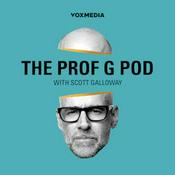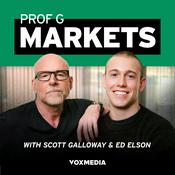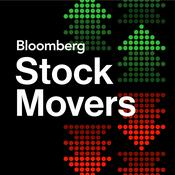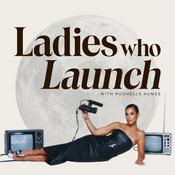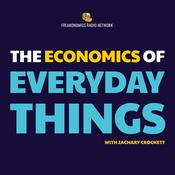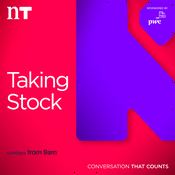26 episodes
- What actually goes into making a custom carbide cutting tool, and why do so many tooling decisions look great on paper but fall apart on the machine?
In this episode of Chips and Tips, Justin from Toolpath sits down with Dave Stanbach of Carbide Cutting Tools for a deep, practical conversation about carbide tooling in the real world. They dig into scrap carbide pricing and why it has surged, how custom tools are really quoted and tested, and why a simple sketch can be more effective than a fully detailed CAD model.
Dave shares hard-earned insight on flute count tradeoffs, helix versus shear geometry, edge prep, coatings, and why features like wipers often fail to deliver better finishes. The discussion also covers thread mills, roughers versus finishers, chip management, and how coatings impact not just tool life but also cutting noise, which matters more than most shops realize.
If you run CNC machines, order custom tools, or want to understand what actually drives tool performance on the shop floor, this episode delivers clear, experience-backed answers with no marketing fluff. - In this episode of the Chips and Tips podcast, Tim Paul sits down with Al Whatmough, CEO of Toolpath, to unpack a career shaped by machining, teaching, and building manufacturing software that respects the craft.
Al shares how his early experiences in machine shops, classrooms, and engineering labs influenced his approach to CAM, automation, and leadership. The conversation covers what Toolpath really does, how to explain toolpaths to both machinists and non-machinists, and why productivity gains only matter when they align with how shops actually work.
They also dive into Al’s role in bringing CAM into Fusion, lessons learned from product leadership at Autodesk, and what he is most focused on today as Toolpath grows. From customer value and sustainable growth to mentorship and faith-driven career decisions, this episode offers a thoughtful look at what it takes to build tools machinists can trust.
If you care about CNC machining, CAM workflows, or the future of manufacturing software, this is a conversation worth listening to. - CAM looks clean in theory. The shop floor decides if it actually works.
In this episode of Chips and Tips, Tim Paul talks with James Meyette about what it takes to turn CAM strategies into parts that run reliably in production. They cover the evolution of CAM systems, why associativity changed everything, and how five-axis machining quickly exposes weak processes.
The conversation dives into multi-pallet five-axis setups, post-processing and simulation realities, CAMplete, Mastercam, Fusion, and where modern tools help without replacing experience. Practical, honest, and focused on what really matters once the spindle starts turning. - In this episode of the Chips and Tips Podcast, I sit down with Devin Bedoni of Lycan Precision to explore the complexities of automation in CNC machining. We tackle the pressing question: should Devin invest in a new spindle or prioritize automation with a robot? As we discuss the nuances of high-mix prototyping and the challenges of integrating automation into existing workflows, Devin shares his insights on balancing production needs with skill levels and the mental load on his team. We also delve into the importance of tool management and programming capacity as critical factors in scaling operations. Join us for a thought-provoking conversation on controlling chaos through automation and the strategic decisions every machine shop faces.
- Justin sits down with automation nerd and Lights Out Manufacturing mastermind Graham Francis for a deep dive into the future of robot-tended machining.
From vacuum-gripping raw stock to running 25 chaotic OP1s on a trade-show floor, Graham breaks down why part-loading beats pallet-loading, why cobots aren’t “toys,” and how self-aligning fixtures make or break real automation.
They get into the messy truth of integrating robots with CNCs, the magic of force-feedback motion, the art of soft-jaw design, and what actually happens when your robot tries to open a chip-packed machine door.
It’s a brutally honest, deeply technical, and surprisingly funny tour through automation myths, machine-shop reality, and the wild engineering that makes lights-out machining possible.
Find Lights Out Manufacturing here: https://www.lightsoutmfg.com/
More Business podcasts
Trending Business podcasts
About Chips and Tips Podcast
We're here to chat about all things Toolpath, Autodesk Fusion, and the machining community. Check out the Chips & Tips blog for extra details on each episode. https://toolpath.com/chips-and-tips
Podcast websiteListen to Chips and Tips Podcast, The Prof G Pod with Scott Galloway and many other podcasts from around the world with the radio.net app

Get the free radio.net app
- Stations and podcasts to bookmark
- Stream via Wi-Fi or Bluetooth
- Supports Carplay & Android Auto
- Many other app features
Get the free radio.net app
- Stations and podcasts to bookmark
- Stream via Wi-Fi or Bluetooth
- Supports Carplay & Android Auto
- Many other app features


Chips and Tips Podcast
Scan code,
download the app,
start listening.
download the app,
start listening.

